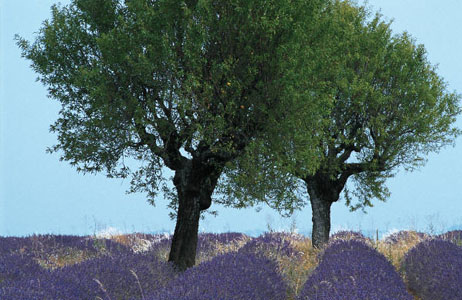|
|
Shamanism Today
|
Many people harbor romantic notions about what it means to be a shaman in a time that has little understanding about what it means to practice this particular form of spirituality. Many imagine an exotic creature, dressed in wild traditional garments, practicing an ancient spiritual practice against a backdrop of a beautiful, natural environment. Today, the practice of shamanism is no longer confined to traditional peoples in the seclusion of the wild, and modern-day people are gaining a greater understanding of how this spiritual practice can enhance quality of life in today's fast-paced world and enhance their religious practice. Don Thomas, founder of the International School of Shamanism and one of the world wide leaders in this trend, calls himself an urban shaman.
|
 Don Thomas is considered a teacher of teachers and his courses typically are in large demand around the world. In collaboration with Diego Herrera, accomplished musician, Don Thomas offers this journeying CD as a healing and very moving richly mastered CD entitled Shamanic Journey. Don Thomas is considered a teacher of teachers and his courses typically are in large demand around the world. In collaboration with Diego Herrera, accomplished musician, Don Thomas offers this journeying CD as a healing and very moving richly mastered CD entitled Shamanic Journey.
This CD features sounds designed to raise your consciousness with music and tempos from a variety of cultures. For this project, Don Thomas and Diego Herrera revealed rhythms that traditional people have been using for thousands of years, gave them words, and articulated new meanings for today. Through such endeavors, Lake has made a significant contribution, which has made shamanism more accessible to people all around the world.
Because of the reemergence of shamanism, there are those who feel that there is an immorality and insincerity in modern people practicing the art form. There are those who argue against the assimilation of the shamanic traditions with other cultures into what some might consider an alien spiritual ideology to those shamanic traditions. Skeptics of urban shamanism imply that this is a form of spiritual theft. However, in actuality, shamanism is not the property of any indigenous culture. The themes and practices of the ecstatic art can be remarkably similar in cultures that are separated geographically by thousands of miles.
|
Some would say that there is an innate desire in all human beings to reach ecstatic states, and certainly people who practice shamanism would argue that there is a metaphysical realness to the otherworldly planes that are visited in the shamanic experience. Lake says that it is probably not enough to simply regurgitate the methods and rituals of traditional people, and that it is probably more effective for modern urban people to adapt techniques to suit their environment and culture. According to Don Thomas, "It is important for anyone using concepts and rituals from native peoples not to be guilty of western cultural arrogance. Shamanic practitioners should always be respectful of the cultures whose traditions are borrowed from, and should always have reverence for spiritual practices that have been practiced throughout the ages."
Although most people can probably conjure up an unrealistic picture of a Shaman, few actually bother to discover exactly how an authentic modern day shaman lives. Most people assume that to have an authentic shamanic experience, one needs to ingest a hallucinogenic plant substance, dance to a hypnotic drumbeat, and then one will be on his or her way to a shamanic experience. However, the truth is much more subtle and complex.
What constitutes a Shaman? Whether traditional or modern, shamans from all cultures have certain characteristics in common that make them definable as Shamans. The word Shaman is not gendered and it is derived from the Tungus word samon, which literally means, "one who is excited or raised." Traditionally, a Shaman is an individual who frequently works alone, or occasionally in small groups.
Don Thomas says, "A Shaman is one who, through a variety of techniques, reaches an ecstatic state where he/she can leave his/her body to visit other worlds, facilitating healing. Shamans are the ones who are the counselors, arbitrators, poets, visionaries, artists, dancers, and musicians. They are the human connection between the material world and the spiritual plane."
Some may wonder why, in today's times, why many modern city dwellers are turning to the beliefs and practices of the oldest spiritual discipline on the planet. The revival of shamanism, in recent years, is indicative of a resurgence of humankind's need to feel connected to the universe. Many shamanic practitioners would say that western culture generates a way of being that seeks to control and conquer human beings, as well as Mother Earth. While these social systems are reflective of the forces that exist within the human psyche, they can be transmuted with different techniques and ideas. In many ways, contemporary society has lost respect for the metaphysical forces that exist in all natural beings and objects. Many argue that modern society does not possess the same sort of deep respect for the sacredness of all living things that was prevalent in archaic cultures.
In western culture, there is an obsession with materialism, and consequently, this sacredness is submerged in today's western worldview. Shamanism teaches that everything is spirit. Modern living means an emphasis on acquisition of wealth, and competition in the work place and within personal relations as well. Don Thomas says that this approach to life has created a spiritual vacuum and a yearning for a magical/spiritual dimension to life. People are now experiencing an awareness of the spiritual deficits that exist in the world today. It is possible that shamanism can act as an antidote for world-weary city dwellers. One of the aspects of what many find appealing in what Don Thomas teaches in shamanism is its ability to live in harmony with all religious persuasions. He says that shamanism reaches beyond the barriers that organized religion can often create and can bring students to a central and primal point where people of all religious persuasions can come together.
 |
It could be said that we all descend from shamanic societies. Many ancient communities were coerced into giving up shamanic practice because of the increasing demands from what is now the dominant religious culture.
Don Thomas says that people who are prepared to sincerely embark on a shamanic path often find it to be a life changing experience and feel liberated by this new spiritual path. Most people who have experienced any kind of shamanic journey return with a deeper understanding and respect for nature, he says. He goes on to say, "They are more aware of the interconnectedness of all things, and how and why they fit into the scheme of the universe. One of the many positive aspects of the shamanic experience is that people often come back with a deep urgency to heal themselves and the rest of the planet."
|
Don Thomas believes that shamanism should be non-hierarchal and that there are no gurus to follow and no spiritual doctrine. A Shaman does not worship nature, but rather honors and respects and feels part of the natural world. Shamanism can act as a way to maintain and cultivate the spontaneity and creativity that is inherent but often crushed in many people. Religious, political, and familial conditioning often reduces many people to being shadows of their true selves. Consequently, many people spend their lives living out the expectations and agendas of those around them rather than living into their true selves. Shamanism can help people reach their deepest personal truth and it teaches spirituality for every day life. The preparation of food, cleaning the house, and looking after children can be transformed from mundane experiences into meaningful spiritual experiences.
Don Thomas believes that being a Shaman certainly connotes responsibilities in that the Shaman has played an essential role in the defense of the psychic integrity of the community. When the Shaman performs his or her duties, he or she represents the archetypal figure confronting any energy that needs healing and restoration. The traditional Shaman can communicate with the spirit world. After the information communicated from the spirit world is transmitted to the rest of the community, it functions to help everyone.
In today's culture, with its obsession with youth and the physical body, the thought of death brings terror for most people. However, dying is considered to be a right of passage for the Shaman, and he or she serves to help people accept and prepare for it.

Shamanism is an effective method for dealing with the spiritual illnesses of the world and it serves a purpose by addressing and helping heal those illnesses that human beings have created by straying from spiritual truth. Much of the suffering in the world stems from humankind's mistaken belief that people are disconnected from each other and the rest of the planet. Many would argue that this notion is the root of the spiritual distress of the world. Sometimes this manifests itself as disease and mental health problems. Or, on a world scale, it manifests itself in war and even the proponents of western culture acknowledge the destruction of the environment. An important component of the role of the Shaman is to raise the consciousness of those around them on these and other issues as well as to help generate better conditions for all forms of life.
Those who practice shamanism can hope for an improvement in the quality of our awareness. This can result in many benefits, improved mental and physical health, enhanced creativity, and a more compassionate and respectful attitude to those around them.
A major theme of the International School of Shamanism's teachings is unconditional love and acceptance. Another important teaching is sacred reciprocity, which says, "Today for you, tomorrow for me." And perhaps, Don Thomas says, if these teachings were more truly integrated into our ways of being, we would gradually create a more peaceful and harmonious world. Most that study shamanism say that through looking at these world traditions, we may find that these are not very different from traditions generated in ancient times, but who many believe are almost entirely lost. Maybe these traditions are never truly forgotten and are just waiting to be reactivated and reinterpreted for a different time.
What would happen if more people acted as important catalysts to raise the consciousness of those around them helping to instill a deep sense of unconditional love and acceptance for all?
Sacred Reciprocity: Today for You; Tomorrow for Me;
|
|
|


